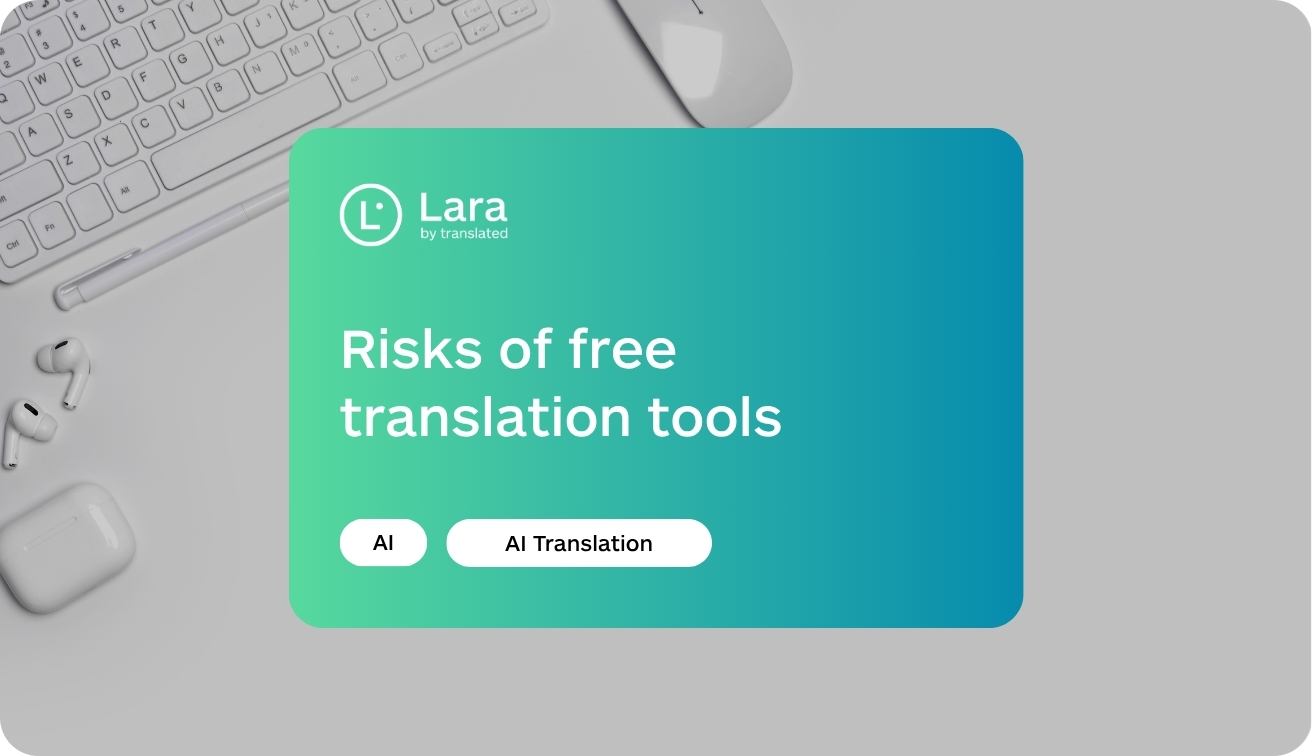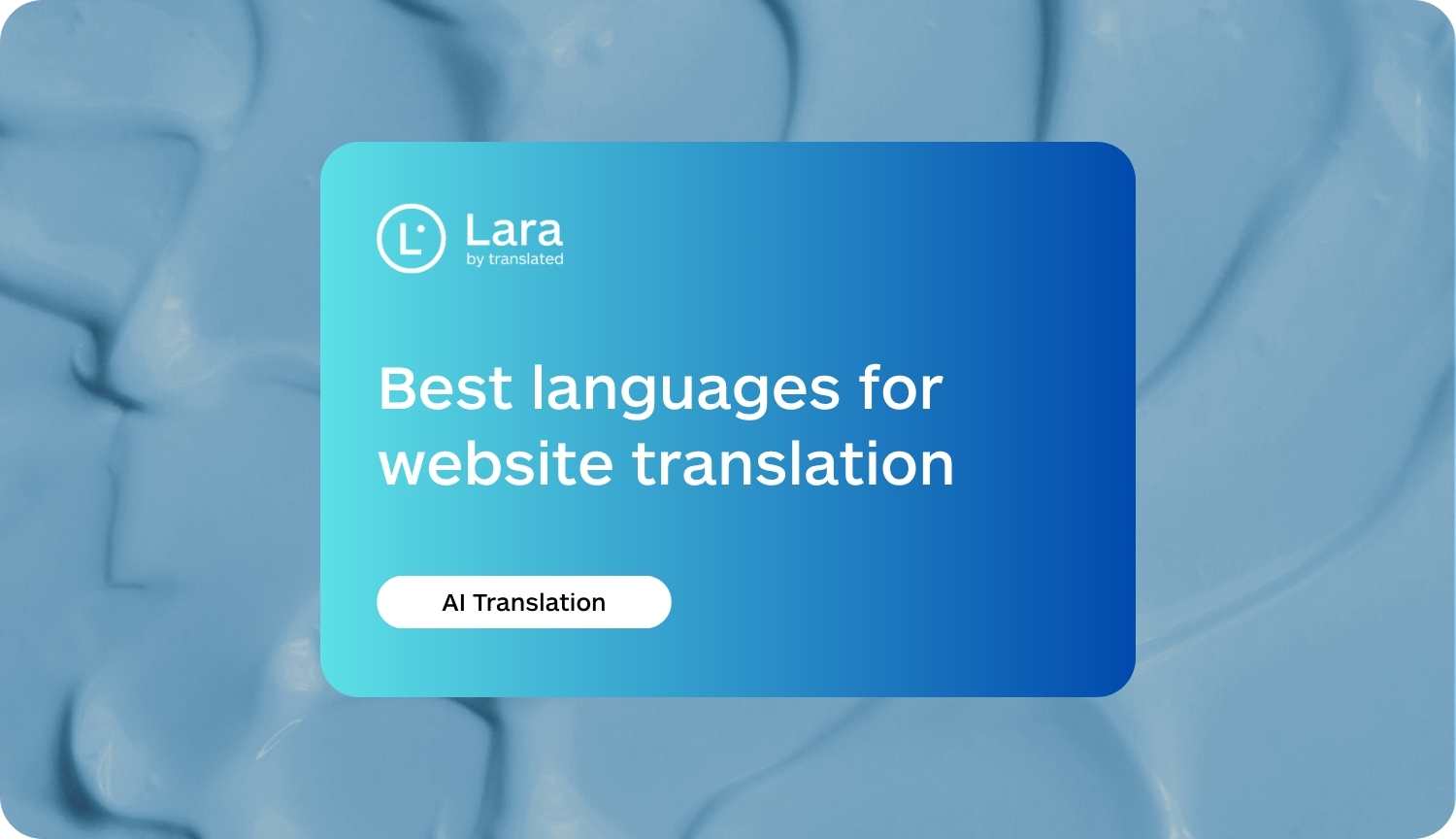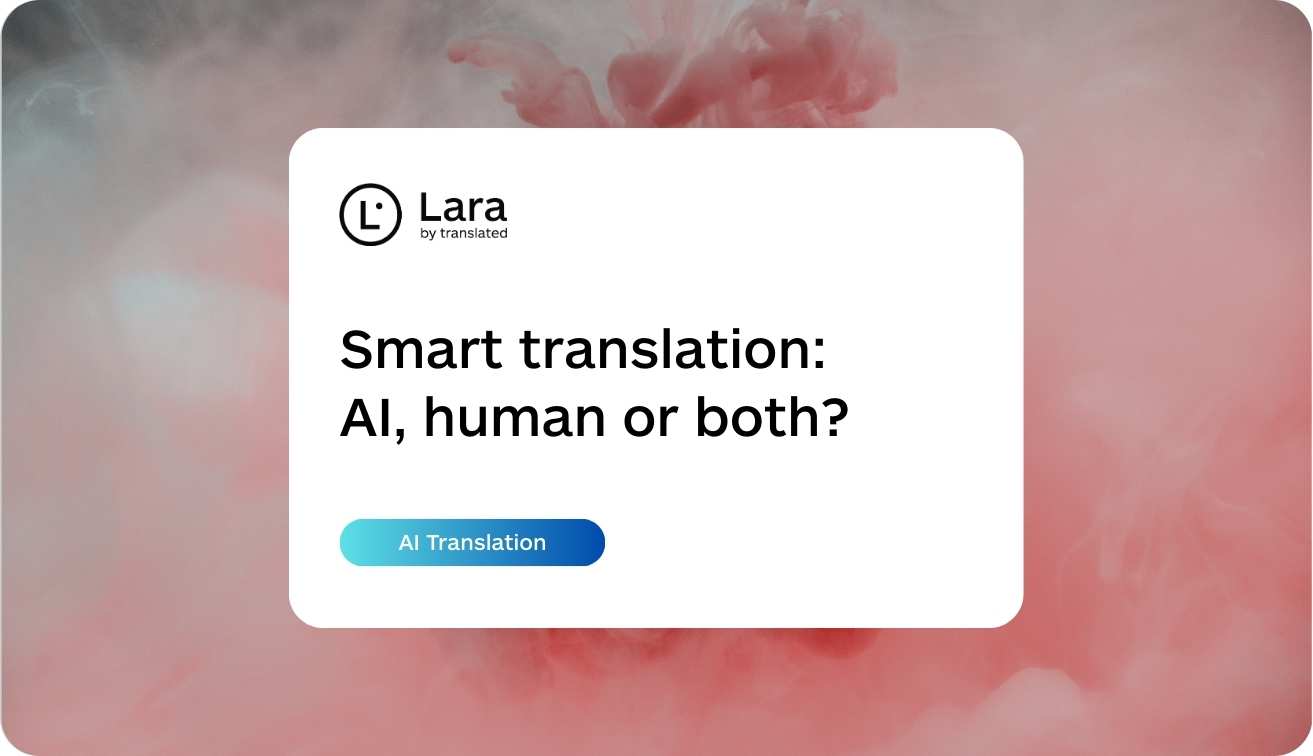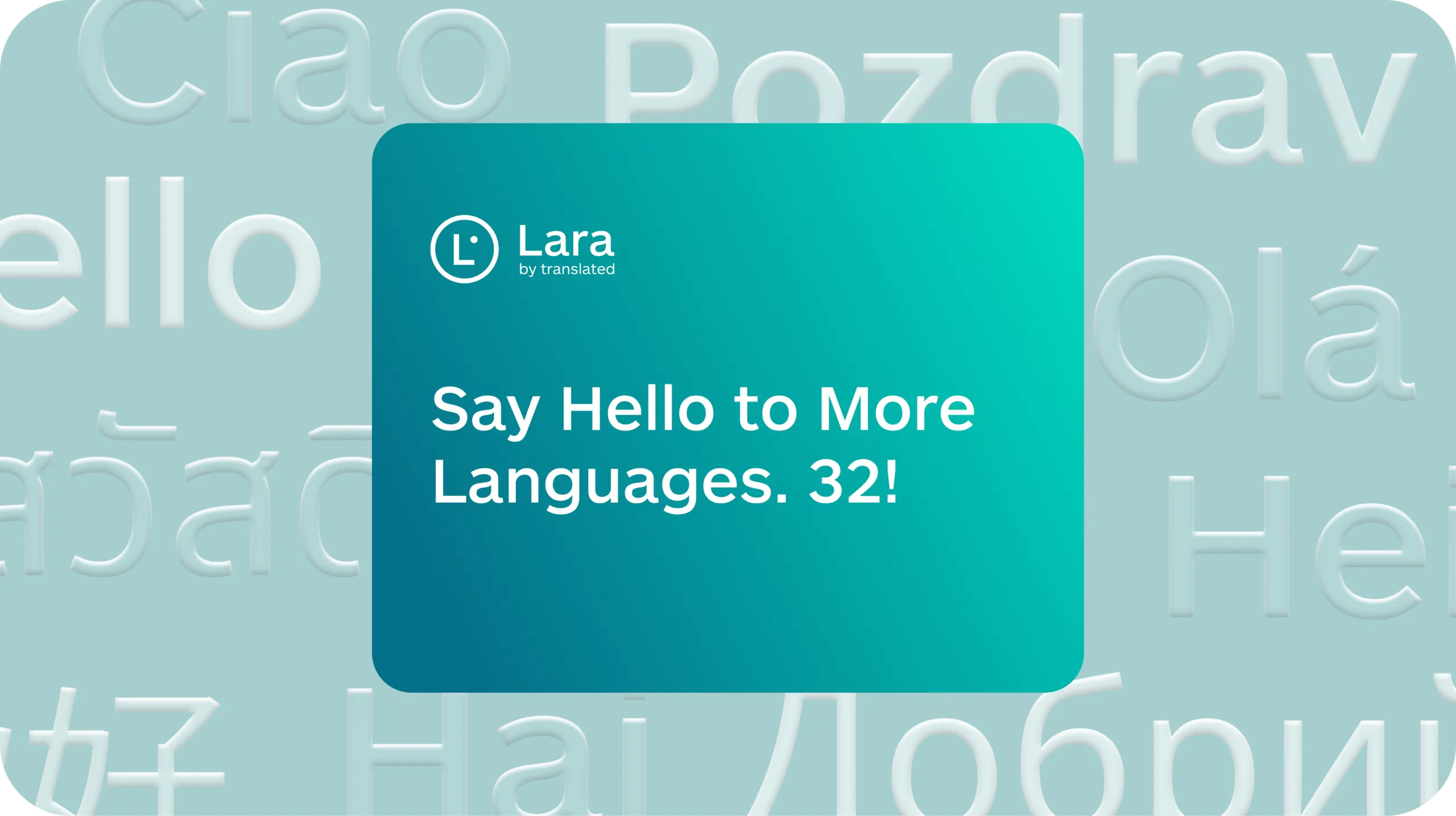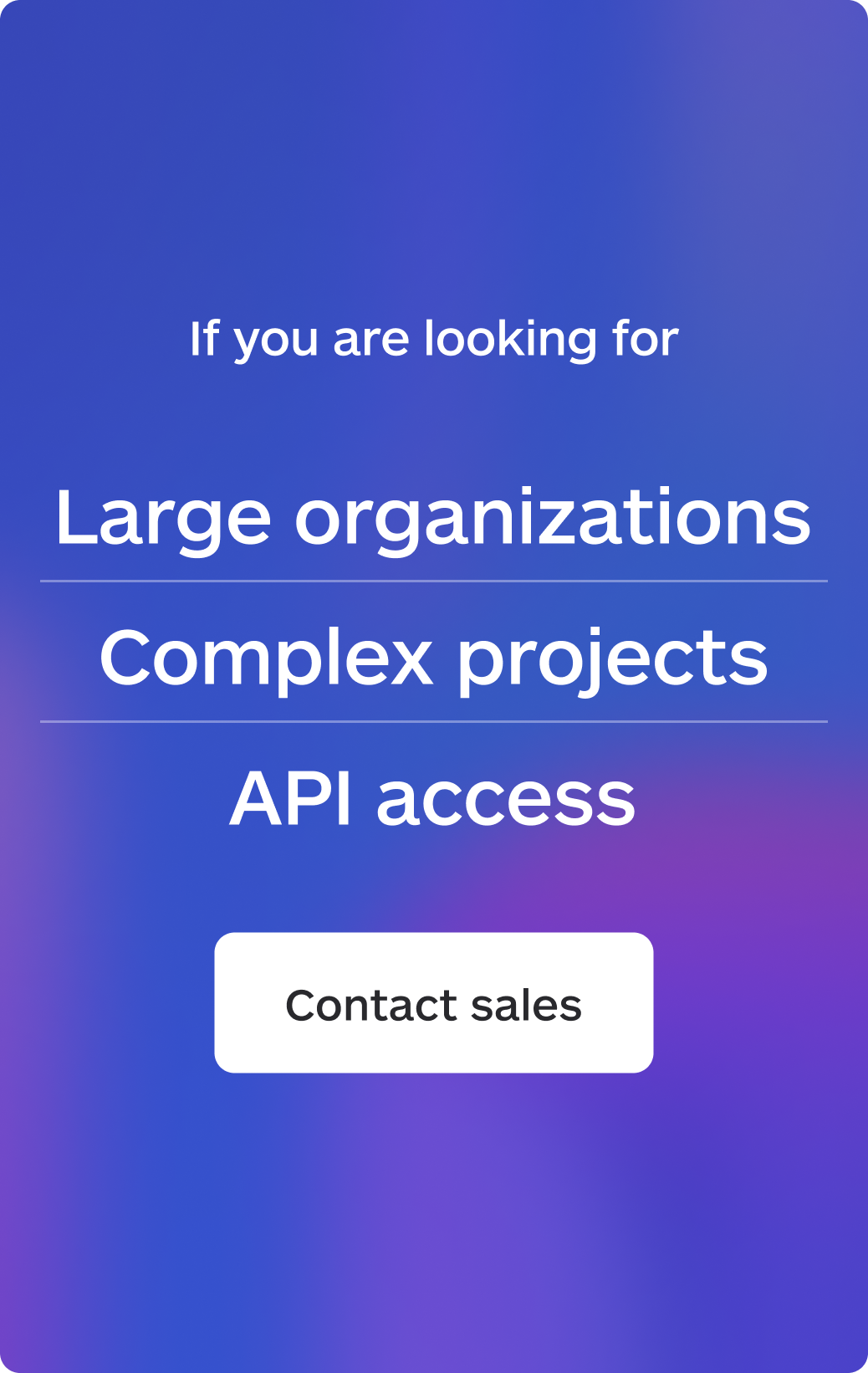Free translation tools sound great, fast, easy, and cost zero. What’s not to love?
But if your business relies on accurate, secure communication, those “free” tools could end up costing you more than you think. From poor translations to privacy risks, the trade-offs can be serious.
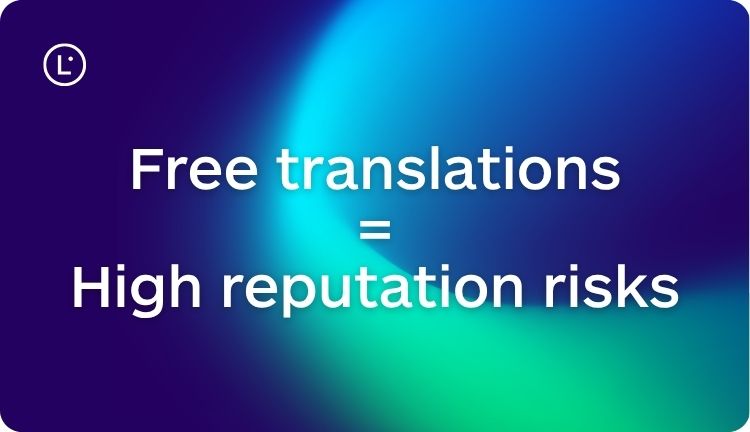
While free AI translation tools like Google Translate, DeepL’s basic version, and ChatGPT have revolutionized accessibility to multilingual content, they come with significant trade-offs that can impact your business’s reputation, security, and bottom line. This comprehensive analysis explores the critical downsides of free machine translation and why investing in professional solutions is often the smarter choice.
The hidden costs of “free” translation
The fundamental principle that “when something online is free, you’re not the customer, you’re the product” applies directly to free translation tools. These platforms monetize your data by using submitted content as training material for their AI algorithms. This practice creates immediate data privacy in free translation apps concerns that can expose sensitive business information.
Consider translating confidential contracts, internal memos, or customer data through free platforms. Once submitted, this information becomes part of the platform’s training dataset, effectively removing it from your control. The Norwegian oil company Statoil experienced this firsthand when confidential documents translated through a free service became publicly accessible via Google searches.
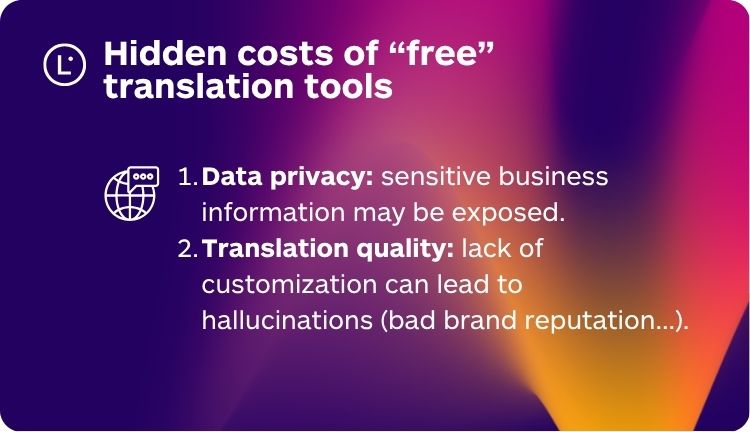
Beyond data security, the translation quality issues in free tools stem from their one-size-fits-all approach. These platforms lack customization options that allow businesses to maintain brand voice, industry-specific terminology, or cultural nuances essential for professional communication.
Data security and privacy vulnerabilities
Security concerns in free AI tools represent perhaps the most significant risk for businesses. Free platforms typically store, analyze, and potentially share your translated content. For organizations handling sensitive information, this creates multiple liability risks:
Confidential business information can be inadvertently exposed through AI training processes. Generative AI tools like ChatGPT may even regurgitate portions of previously submitted content in future interactions with other users. Financial institutions, healthcare providers, and legal firms face particular risks when using free tools for translating regulated content.
The AI translation security landscape becomes even more complex when considering that many free tools offer no guarantees about data deletion, geographic location of data processing, or compliance with industry regulations like HIPAA or GDPR.
Accuracy and quality control limitations
The accuracy limits of free AI translators become apparent when dealing with complex, nuanced, or specialized content. While these tools may achieve reasonable accuracy for simple conversational text, they struggle with industry jargon, cultural references, and context-dependent meanings.
Quality control in free translation is virtually non-existent. Users receive translated content without verification, editing, or quality assurance processes. A 2019 study revealed Google Translate’s accuracy varied dramatically from 94% for English to Spanish translations to just 55% for English to Armenian pairs.

Machine translation risks extend beyond simple inaccuracy to include bias perpetuation and hallucinations. Free AI models often reflect biases present in their training data, potentially producing culturally insensitive or discriminatory translations. Additionally, generative AI tools may “hallucinate” information not present in the original text, creating potentially dangerous mistranslations.
Professional communication and brand integrity
Free vs paid translation comparison reveals stark differences in maintaining professional standards. Free tools cannot adapt to your brand voice, maintain consistent terminology across documents, or ensure culturally appropriate messaging for specific markets.
The bias in free language models can damage international relationships and alienate target audiences. Google Translate, for instance, has been documented perpetuating gender stereotypes by defaulting to gendered language inappropriately.
Professional translation solutions offer customization options, brand consistency tools, and human oversight that preserve your organization’s integrity across all communications. These features are simply unavailable in free alternatives.
When not to use free translation tools
When not to use free translation tools becomes clear when considering high-stakes communication scenarios. Legal documents, medical information, safety instructions, marketing materials, and any content requiring regulatory compliance should never rely solely on free translation platforms.
The U.S. Department of Justice specifically “strongly discourages” using automatic translations for federal programs. Even Google acknowledges their tool “should have translations verified” for high-stakes situations.
However, free tools can serve limited purposes for internal research, getting general understanding of foreign language content, or preliminary draft preparation – always with proper disclaimers and follow-up professional review.
The Lara translate advantage
Professional AI translation security and accuracy require specialized solutions designed for business needs. Lara Translate addresses the limitations of free translation tools by providing enterprise-grade security, customizable translation models, and consistent quality control.
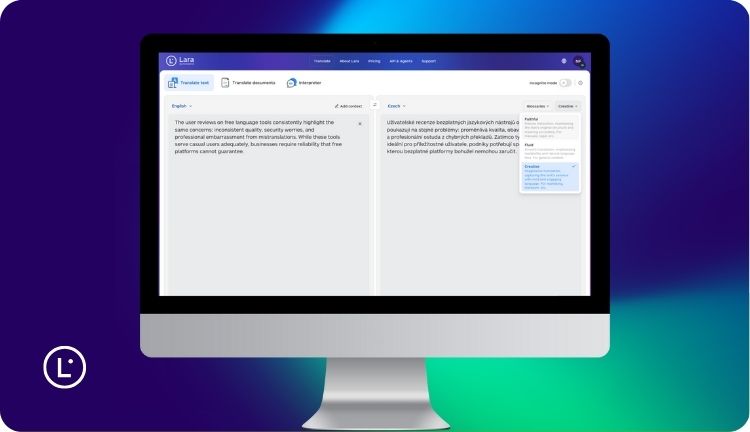
Unlike free alternatives, Lara Translate offers transparent data handling policies, specialized training on professional content, and integration capabilities that work seamlessly with existing business workflows. The platform maintains translation memories and glossaries specific to your organization, ensuring consistency across all communications while preserving sensitive information security.
For businesses requiring reliable, secure, and accurate translations, understanding how Lara’s AI technology works provides insight into the advanced approach that sets professional solutions apart from free alternatives.
Making informed translation decisions
The user reviews on free language tools consistently highlight the same concerns: inconsistent quality, security worries, and professional embarrassment from mistranslations. While these tools serve casual users adequately, businesses require reliability that free platforms cannot guarantee.
Limited language support in many free tools also restricts global expansion opportunities. Professional solutions typically offer broader language coverage with specialized expertise in technical, legal, and industry-specific translations.
Investing in professional translation services, whether human or AI-powered, protects your business from the hidden costs associated with poor translations, data breaches, and damaged international relationships. The initial investment in quality translation solutions pays dividends through improved communication, reduced risk, and enhanced global presence.

For organizations exploring translation options, learning about different translation approaches and their applications helps identify the most appropriate solution for specific business needs.
Remember that effective translation goes beyond word conversion – it requires cultural understanding, context awareness, and quality assurance that free tools simply cannot provide at a professional level.
FAQ
Are free translation tools like Google Translate or DeepL suitable for business use?
Not reliably. While they offer quick and easy translations for everyday use, they lack the accuracy, industry-specific terminology, and quality assurance needed for professional communication. Relying on them can damage brand credibility and lead to costly miscommunication.
Is my data safe when I use free translation tools?
Generally, no. Most free platforms use submitted content to train their AI models, which means your data may be stored, analyzed, or even reused. This creates significant privacy risks, especially when handling confidential business, legal, or medical information.
What kinds of content should never be translated using free tools?
Any high-stakes or sensitive content should be avoided — including legal contracts, financial documents, health records, compliance materials, and branded marketing content. These require accuracy, confidentiality, and regulatory compliance that free tools cannot guarantee.
Can free tools maintain brand voice and industry terminology?
No. Free tools use a one-size-fits-all model and cannot be customized to reflect your company’s tone, terminology, or cultural nuance. This often results in inconsistent or inappropriate messaging that undermines brand identity.
Are there security concerns beyond just data reuse?
Yes. Free tools often do not specify where your data is processed, how long it’s stored, or whether it complies with data protection laws like GDPR or HIPAA. Some AI tools may even reproduce parts of previous submissions in future outputs, risking data leakage.
This article is about
- The hidden costs and quality limitations of free translation tools for business use
- Data privacy risks and security concerns in free translation apps versus professional solutions
- When to avoid free tools and how to assess translation needs in high-stakes communication scenarios
- Professional alternatives like Lara Translate that offer secure, accurate, and scalable translation services
